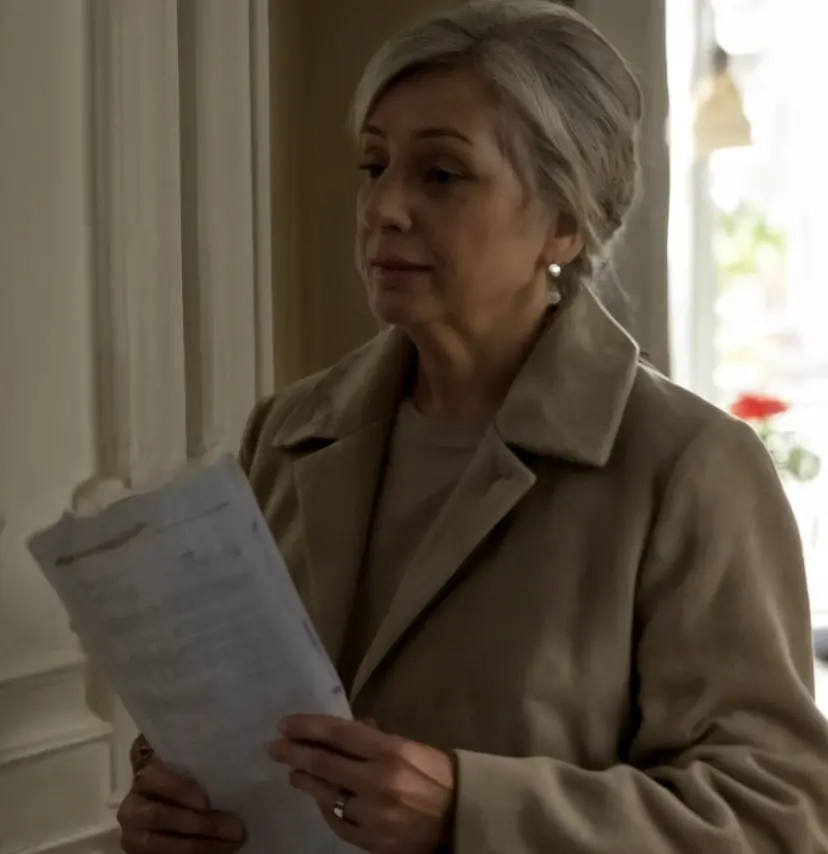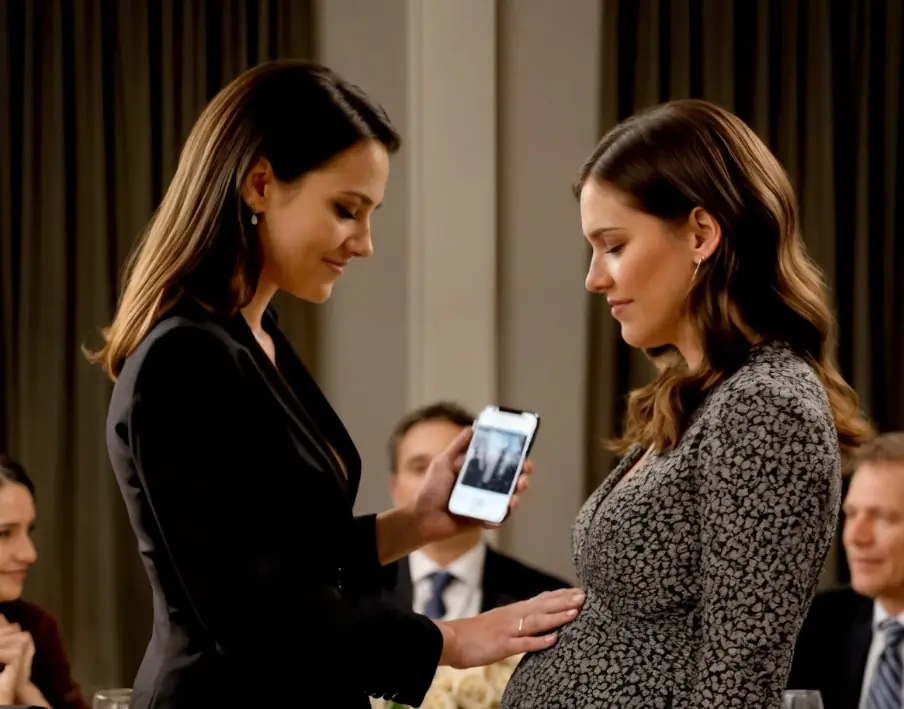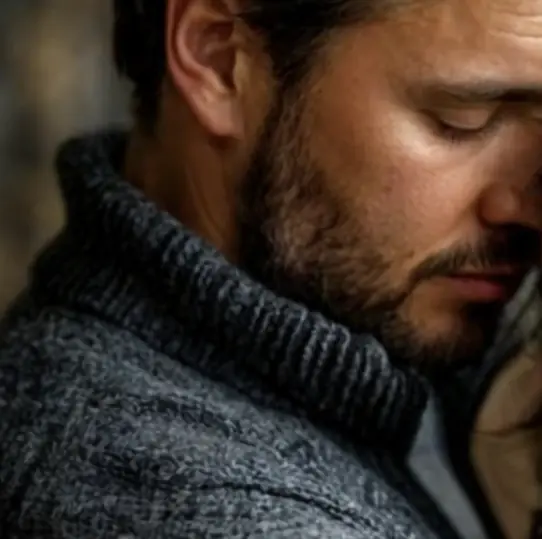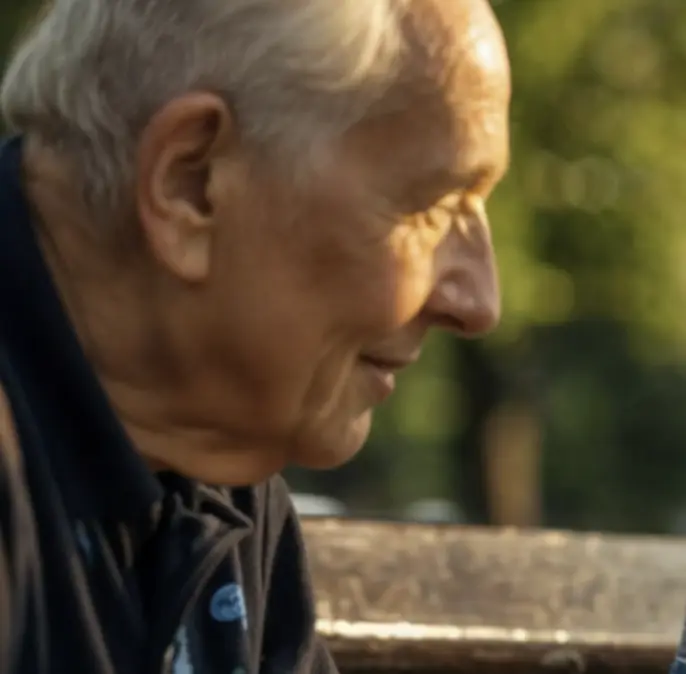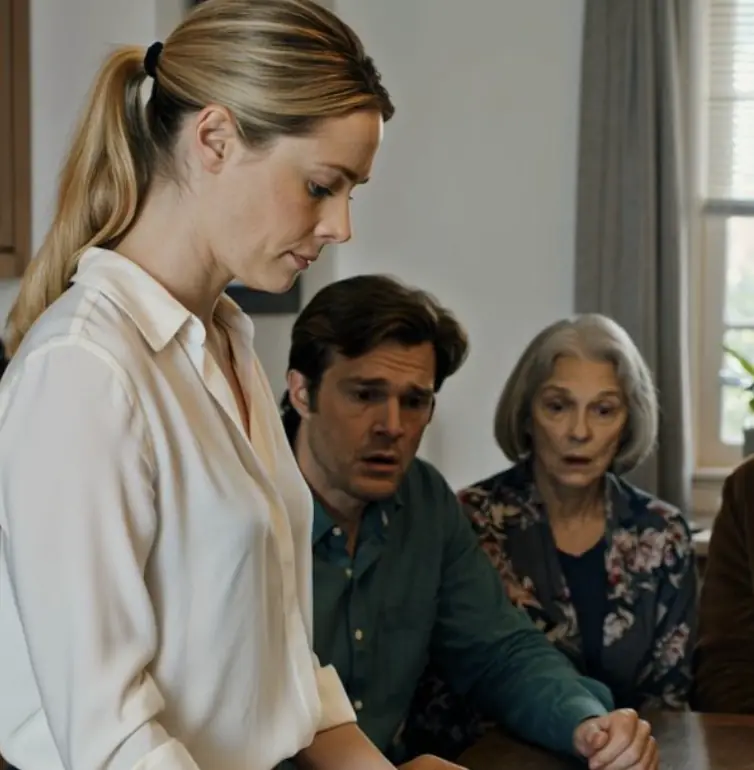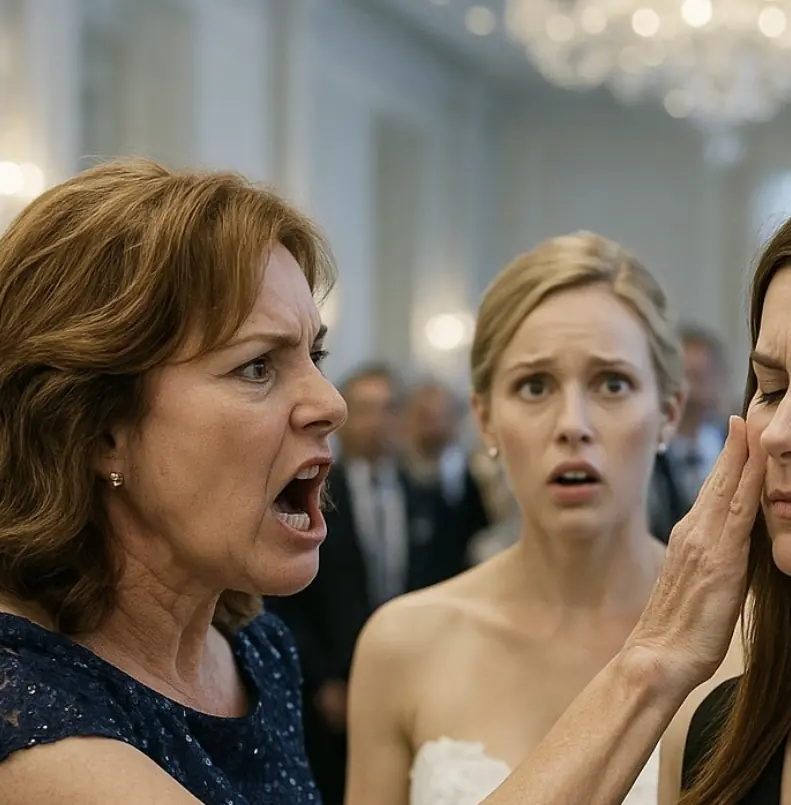“I used to believe his promises. I trusted him with my future. I never imagined this nightmare would be my reality.”
Those words echoed in my mind on the night everything broke apart. I remember standing in the hallway, barely able to breathe, my fingers shaking as I gripped the door handle. Behind me, his voice thundered across the apartment, sharp and filled with a kind of rage I had never seen before.
“Don’t you dare open the door!” he shouted.

My heart was pounding so loudly that for a moment, I thought he could hear it. The lights felt too bright, the air too heavy, and the world around me too small to hold all the fear pressing against my ribs. That was the night I finally admitted a truth I had been avoiding for far too long: the man I once loved, the man who once promised to protect me, had turned into someone I could no longer recognize. But before that night happened, there was a beginning — a beginning so beautiful that I didn’t see how quickly it would twist into something else entirely.
When I first met Daniel, he felt like everything I had ever hoped for. He spoke gently, listened carefully, and carried himself with a confidence that made me feel safe. He remembered the smallest things about me: my favorite pastry, my fear of lightning, the way I loved collecting old postcards. He said things like, “You deserve someone who puts you first,” and “I want to be the person who makes your life easier.” Those words wrapped themselves around my heart like warm blankets, soft and comforting, and I let myself believe he meant every single one of them.
My friends adored him. My parents thought he was mature and respectful. And I… I thought he was the kindest person I had ever met. We married sooner than most couples, but everything felt right at the time. The smiles, the promises, the plans for the future — it all looked so perfect from the outside.
But perfection can be the first sign something isn’t real.
The shift didn’t happen suddenly. It started with tiny comments that didn’t feel serious at first. He would ask why I didn’t answer the phone immediately. He would suggest I change outfits before going out. He asked me not to spend too much time with certain friends because they “didn’t have my best interests at heart.” Each comment came with a smile or a kiss on the forehead. Each concern was wrapped in soft words.
“I’m just trying to take care of you.”
“I only want what’s best for us.”
I believed him. I thought his worries came from love, not control. But the comments kept coming, and slowly, the tone behind them changed.
My phone began disappearing from where I left it. Sometimes I’d find it on the other side of the room. Other times, in a drawer I never used. He always had a reason: he moved it while cleaning, or he picked it up to check the time. The explanations sounded harmless, even thoughtful. I didn’t want to assume the worst. I didn’t want to lose the image of the man I married.
But the space around me began shrinking. I found myself hesitating before texting someone, wondering how he would react. I stopped meeting one of my closest friends because he insisted she “didn’t appreciate me.” I started altering my clothes and my routine in ways that made me feel like a stranger to myself.
I kept trying to adjust, hoping things would go back to how they were. But instead of improving, his frustration grew. He became impatient over the smallest things — a misplaced key, a forgotten errand, a simple misunderstanding. I felt like I was walking through my own life on broken glass.

Then came the night where everything shattered at once.
I woke up suddenly, my heart racing for no reason. The room felt strange, like the air itself was warning me. I slipped out of bed and followed the faint light in the hallway. That’s when I saw him — pacing, muttering, his face tightened in a way I had never seen before. On the kitchen counter behind him were the contents of my bag, dumped out like a pile of accusations.
He turned to me with eyes filled with suspicion.
“Where were you today?” he asked.
“At work,” I said quietly.
“I don’t believe you.”
Something about the way he said it — low, direct, and filled with certainty — made my whole body tense. I couldn’t look away from his expression. It wasn’t confusion or worry. It was something deeper, something that made my knees weak.
I stepped backward. The floorboard creaked. His eyes darkened.
I don’t remember deciding to run. My body simply reacted. I sprinted toward the front door, every instinct screaming that I needed to leave. The hallway seemed endless, but somehow, I reached the door.
“Don’t you dare open that door!” he roared.
My hand froze for a second. And in that second, through the small glass window beside the frame, I saw my own reflection. My wide eyes. My tense shoulders. My fear.
I knew then that if I stayed, I would lose myself completely.
So I opened the door and ran.
I ran barefoot down the staircase, onto the empty street, and toward the only safe place I could think of — the home of the friend he told me to avoid. She opened the door immediately, and the moment she saw my face, she pulled me inside without a word.
That night, for the first time in months, I told someone the truth. Every small detail I had brushed aside. Every uncomfortable moment I had swallowed. Every time I changed my behavior to avoid an argument. I admitted how long I had been afraid.

She didn’t interrupt me. She didn’t judge me. She simply said, “You’re safe now. And you don’t have to face this alone.”
Her words were the first moment of relief I had felt in so long that I nearly collapsed from the weight of them.
Over the next few days, I reached out to people who could help me figure out what steps to take. I gathered information, documented everything I could remember, and made decisions I never thought I would have the strength to make. My family supported me once they understood what had been happening. Their concern helped me hold onto the pieces of myself I still had.
Then his messages began.
They started as apologies. Long, emotional paragraphs. He said he didn’t mean anything he said. He said he was stressed. He said he was confused. He begged me to come home so he could explain. When I didn’t respond, the tone shifted. He reminded me of our wedding vows. He insisted that couples should “work through things.” Then he went silent for a day, only to send another wave of messages about how empty the apartment felt without me.
At one point, I almost believed him. I remembered the man I fell in love with — the man who bought me flowers and held my hand and made me feel understood. But then I remembered the fear in my stomach the night I ran, the way he raised his voice, the look in his eyes when he doubted me without reason.
And in that moment, the truth became clear:
The version of him I loved wasn’t the real him.
It was the version he showed me long enough to make me stay.
The real him was the man who wanted to control every part of my life. The real him was the man whose promises were only beautiful words wrapped around something dangerous.
Walking away wasn’t easy. Some days, the memories felt warm enough to make me question everything. But then I reminded myself that love is not supposed to make you feel afraid. Love is not supposed to take away your freedom or silence your voice. Love is not supposed to twist you into someone unrecognizable just to keep the peace.
I didn’t leave because I stopped caring about him.
I left because I finally started caring about myself.
Today, I’m rebuilding my life — slowly, carefully, beautifully. I’m reconnecting with friends, going back to hobbies I abandoned, and learning that I am stronger than I ever believed. The past still echoes sometimes, but it no longer controls me.
He promised he’d never hurt me.
But he did.
And that’s why I finally learned to protect my own heart — even from the person I once trusted the most.







